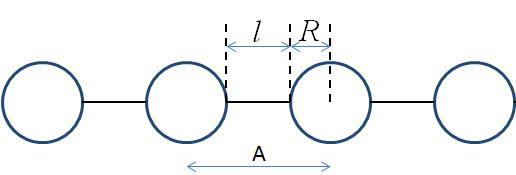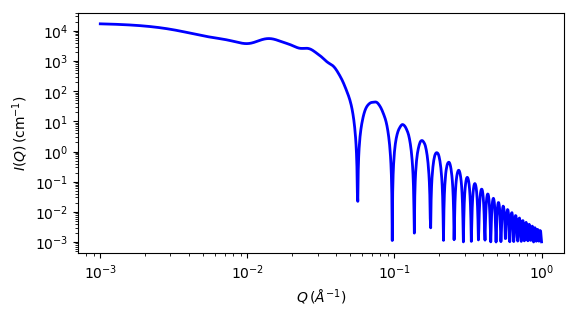linear_pearls
Linear pearls model of scattering from spherical pearls.
| Parameter | Description | Units | Default value |
|---|---|---|---|
| scale | Scale factor or Volume fraction | None | 1 |
| background | Source background | cm-1 | 0.001 |
| radius | Radius of the pearls | Å | 80 |
| edge_sep | Length of the string segment - surface to surface | Å | 350 |
| num_pearls | Number of the pearls | None | 3 |
| sld | SLD of the pearl spheres | 10-6Å-2 | 1 |
| sld_solvent | SLD of the solvent | 10-6Å-2 | 6.3 |
The returned value is scaled to units of cm-1 sr-1, absolute scale.
This model provides the form factor for N spherical pearls of radius R linearly joined by short strings (or segment length or edge separation) l (=A−2R). A is the center-to-center pearl separation distance. The thickness of each string is assumed to be negligible.

Definition
The output of the scattering intensity function for the linear_pearls model is given by (Dobrynin, 1996)
where the mass mp is (SLDpearl−SLDsolvent)∗(volume of N pearls). V is the total volume.
The 2D scattering intensity is the same as P(q) above, regardless of the orientation of the q vector.

Fig. 81 1D plot corresponding to the default parameters of the model.
Source
linear_pearls.py
⋆ linear_pearls.c
⋆ lib/sas_3j1x_x.c
References
- A V Dobrynin, M Rubinstein and S P Obukhov, Macromol., 29 (1996) 2974-2979
Authorship and Verification
- Author:
- Last Modified by:
- Last Reviewed by: